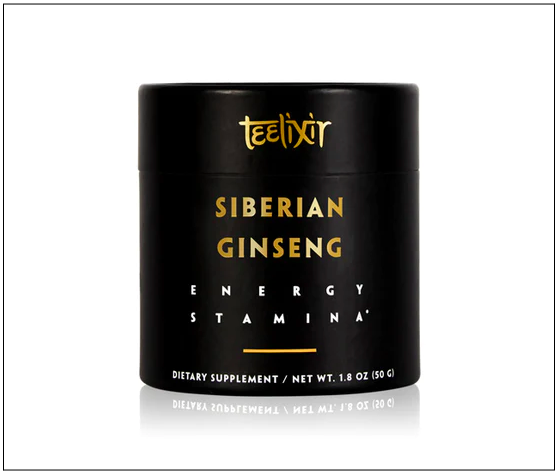Siberian Ginseng Benefits As Medicinal Mushrooms Benefits
Ginseng is one of the most consumed supplements for its ability to stimulate resistance and counteract weakness or exhaustion. Next, we expose the origin of ginseng, its various benefits, as well as its possible side effects.

The rush, stress, or lack of sleep cause weakness and exhaustion in many people. To counteract these symptoms there are various natural remedies, and supplements that have become common in our routine.
One of the most consumed is ginseng, a plant whose root has been used in oriental medicine for more than 5,000 years. Next, we expose the origin of ginseng and its various benefits.
What Is Ginseng?
Surely you have ever heard the saying "this is not a panacea", about which a certain compound should not be interpreted as a universal remedy. Well, ginseng is a plant of the panacea genus, from the Greek Panax which means "heals all"
It is a plant that grows on the slopes of mountains in cold areas of the Asian continent such as China, Korea, or Russia, but due to its high demand we can also find it in Canada, the United States, Mexico, or even in Spain.
For 5,000 years there is evidence that Chinese medicine already used the root of this plant to prepare remedies against weakness and exhaustion thanks to its tonic and restorative properties. The high content of the so-called ginsenosides of this root determines its revered effects. But for ginseng to provide these medicinal benefits, the plant must mature for at least six years.
Depending on where it has been cultivated, there are different types of ginseng such as Siberian, Chinese, American, or Korean, also known as red ginseng, which is considered the most stimulating.
Ginseng Benefits
Siberian Ginseng, also known as Eleuthero root, became a kind of pioneer in the fashion of food supplements, those 'panaceas' that promised to fix everything. And what are those benefits that make ginseng one of the most consumed natural supplements in the West since it broke out in the 1990s?
Stimulates Resistance
According to various studies —including one from the Completeness University— ginseng is capable of stimulating resistance in situations of overexertion: it is that (natural) 'energy shot' that many seek to maintain a high pace of life.
This increase in resistance is mainly due to the action of ginseng on the central nervous system (CNS), decreasing cerebral oxygen consumption, and also acting on neurotransmitters such as dopamine and serotonin.
Boosts Cognitive Processes
Other studies ensure that ginseng also has a nootropic effect in such a way that it favors cognitive processes, improving visual memory and acting against anxiety. In this sense, these studies affirm that ginseng could facilitate abstract thinking by producing faster reactions to simple acoustic or visual stimuli, even though it has not been shown to improve mental concentration.
On the other hand, ginsenosides could also alleviate the effects caused by beta-amyloid peptides, mainly responsible for the neurodegeneration of diseases such as Alzheimer's, and Korean ginseng favors neuronal survival.
Supports The Immune System
Ginseng might also increase lymphocyte proliferation and antibody production, including the possibility of some antiviral activity. Some of the mentioned studies suggest that ginseng might have anticancer activity on some tumors.
Other Medicinal Benefits Of Ginseng
In addition to the main virtues associated with the consumption of this root, such as the improvement of resistance and brain activity, ginseng also improves the secretion of mucus, which favors the protective effect on gastroduodenal ulcers. Likewise, reducing oxygen consumption could have a beneficial contribution to our cardiovascular system.
